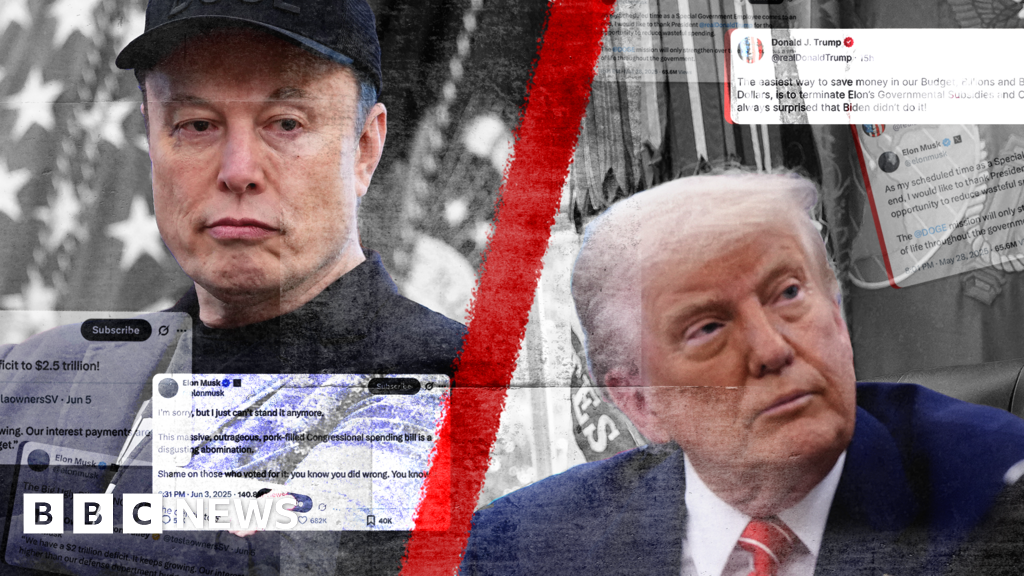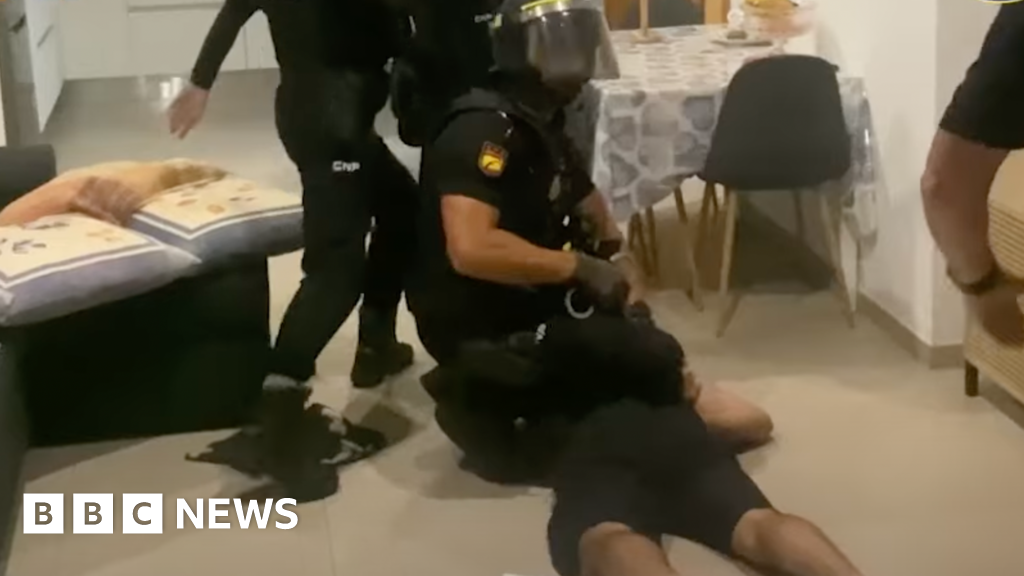The Gaza Humanitarian Foundation (GHF), created in February and led by “seasoned crisis operators”, will rely on US-based contractors – including one led by a former head of the CIA’s paramilitary arm – to guard aid “hubs” it plans to set up in areas of Gaza without the involvement of the Israel Defence Forces.
The Israeli military will not be stationed at the “hubs” but will nevertheless be present “at a distance", said Mike Huckabee, the US Ambassador to Israel.
Gaza's population would be forced to move south to receive aid in a new zone cordoned off by Israel's military. On Sunday, Israeli Prime Minister Benjamin Netanyahu reportedly told the Israeli Foreign Affairs and Defence committee that "the Gazans we remove will not return. They won't be there. We will control the place".
The foundation’s proposal is a fund-raising pitch that says it will use an “independent, rigorously audited model” in providing aid.
But top officials at the UN and in the US government – as well as humanitarian aid groups – are sceptical, fearing that a private charity with experience in “crisis” operations but not humanitarian missions cannot handle the colossal task of delivering much-needed assistance to starving Gazans.
Moreover, it remains unclear whether the Gaza Humanitarian Foundation will share the UN’s commitment to impartiality.
“The UN cannot join any effort that does not meet our principles for the distribution of humanitarian aid, including humanity, impartiality, independence and neutrality,” UN deputy spokesperson Farhan Haq told PassBlue and FRANCE 24.
“The plan appears designed to reinforce control over life‑sustaining items as a pressure tactic and will drive further displacement,” UNICEF spokesperson James Elder said on Friday, calling it a choice “between displacement and death".
“It’s dangerous to ask civilians to go into militarised zones to collect rations … humanitarian aid should never be used as a bargaining chip,” Elder added.
The plan’s questionable emphasis on providing aid “only” to those in need and its vow to “rigorously” audit aid missions raises concerns among humanitarians and UN officials of an overemphasis on restricting who gets aid.
The Gaza Humanitarian Foundation proposal, seen in full by FRANCE 24 and PassBlue, will further monitor food delivery into Gaza “down to the last calorie and the last grain of flour”, Haq said as the Israeli blockade enters a third month.
Officials from the UN and humanitarian aid NGOs pushed back after the plan was unveiled in recent weeks. While the GHF proposal says its mission will maintain “strict adherence to humanitarian principles” it makes no mention of following international humanitarian law, to which both the United Nations and Israel – as the occupying power in the Palestinian Territories – are bound.
Operating a separate, private entity to lead aid missions could invite more chaos and opportunism into war-ravaged Gaza.
An analysis by the UN Office for the Coordination of Humanitarian Affairs (OCHA) not only denounced the plan but also noted that it was “likely [to] be rejected by other parties to the conflict”.
OCHA’s assessment found the proposition “unfeasible” for many reasons, including that rations would be distributed only once or twice a month at designated locations.
Pre-packaged rations, hygiene kits and medical supplies “will move through tightly controlled corridors, monitored in real time to prevent diversion”, the GHF plan says. It estimates its per-meal cost at $1.30, including logistics, procurement, distribution and providing security, and claims a $65 donation “covers 50 complete meals … delivered directly to an at-risk civilian”.
The blueprint says that four distribution sites will aim to provide supplies for a total of 1.2 million Palestinians, or about 60% of Gaza’s population, with plans to scale up aid to the entire population.
‘Treason at the highest level’
Another controversial part of the plan is that the GHF will be led by at least one former high-level UN security official, who ostensibly would be working for a private organisation that is not blessed and even scorned by the UN. Bill A. Miller, a former member of the UN’s Department of Safety and Security, is listed on the advisory board, while David Beasley, the former head of the World Food Programme, is named but unconfirmed. (Beasley could not be reached for comment.)
“This is treason at the highest level,” a UN source, who is regularly inside Gaza, told FRANCE 24 and PassBlue, referring to the involvement of former high-level UN officials in a venture that could usurp the UN’s humanitarian role in Gaza. The GHF presented its plan to the UN and “told us to accept working with them or leave. They’re coming to take over, weaponising aid.”
But the UN appears powerless to stop the plan from moving forward.
“The UN is not an army. We can’t stop them from doing it. The Israeli government has control over the area,” a top UN official said.
“This humanitarian mechanism was very much the government of Israel’s idea,” said a US government source, adding that a high-level meeting on the initiative was convened on Thursday. The source went on to call the project a “less secure version” of the Biden-era floating pier built on Gaza’s coast but said it was “deadlier”.
“This is very much an Israeli idea and we don’t believe this is the appropriate answer to the dire situation” in Gaza, the source said.
Steve Witkoff, the US envoy for the Mideast, warned the Security Council that the US would cut funding to UN agencies that did not accept the GHF proposal. The Council itself has no control over such bodies but can exert influence on their decisions.
Israel contends the GHF plan will keep Hamas militants from stealing food and other essential goods, yet Israel has not provided proof that Hamas is doing so. The UN says that 240,000 metric tons of supplies are “waiting at the crossings” for Israel to let them in.
“The idea of the model is Hamas will not be able to take advantage of humanitarian aid,” Danny Danon, Israel’s envoy to the UN said on May 7 to reporters. Meanwhile, the UN Inter Agency Standing Committee (IASC) co-ordination forum is urgently evaluating its position regarding the US-led plan by possibly presenting a counterproposal.
To display this content from , you must enable advertisement tracking and audience measurement.
Oversight for hire
The GHF, registered in Geneva, does not provide details on its funding but is led by Nate Mook, a former chief executive of the World Central Kitchen charity.
The GHF plan says the foundation will hire US private security firms that have worked in Gaza’s Netzarim Corridor during the recent ceasefire, to guard the perimeter of the “secure distribution sites”.
The two security firms involved are North Carolina-based UG Solutions and Safe Reach Solutions, which is a shell company of the Wyoming wealth management firm Two Ocean Trust, LLC.
UG Solutions is managed by former US Special Forces soldier Jameson Govoni who is the founder of counter-trafficking organisation Sentinel Foundation.
Former CIA paramilitary chief Philip F. Reilly runs Safe Reach Solutions and was behind the operational plan for checkpoints in Gaza’s Netzarim corridor.
Reilly also worked for the private military contractor Constellis, the owner of the notorious private security firm formerly known as Blackwater.
The men operating the checkpoint at the Netzarim corridor appear to be middle aged with “submachine guns hanging over their beer bellies", according to a UN source inside Gaza.
“They used an Egyptian company as advance in the queues, filtering who goes where in the scanners,” the source added.
Israel has said that facial recognition will be used to screen aid recipients inside Gaza.
The United Nations Children's Fund (UNICEF) has rejected the Israeli plan to impose facial recognition as a condition for accessing aid and considers it to be in “violation of all humanitarian principles", contributing to the “monitoring of beneficiaries for intelligence purposes”.
UN insiders have said GHF military-style operations do not align with the nuanced needs of humanitarian aid and long-term development goals.
Khaled Qadas, who runs soup kitchens in Gaza, said on Sunday that “many families are now surviving on little more than a piece of dry bread – even when that is available". Some people that are waiting in line at charity kitchens are even fainting from hunger.
Senior officials at the UN are adamant that their own aid operation models – notably during the recent ceasefire – work best.
“Kids were getting fed, medicine was going in,” said a UN official who is regularly inside Gaza. “If you look at this plan, it invites danger because you have mass movement of people.”
On Monday, UNICEF and the WFP warned of "looming catastrophe as 71,000 children and more than 17,000 mothers are threatened by acute malnutrition".
The GHF plan envisages only 60 aid trucks per day entering Gaza – one-tenth of what was being delivered during the ceasefire.
A UN official described the GHF plan as “dystopian” and said it was “clearly not finished”.
It was “designed to keep things in humanitarian mode without any ceasefire, any recovery, any rehabilitation or any services”, the official said. “Basically turning Gaza into a penal colony.”
“This is a new approach with one focus: get help to people right now,” Tammy Bruce, a State Department spokesperson, told the media on Thursday. Although she said an announcement would be made “shortly” by the foundation, nothing has surfaced. The agency’s press office is also referring questions to GHF but no contact information is provided by the State Department.
The GHF plan proposes hiring large multinational banks – including J.P. Morgan and a “Swiss affiliate backed by Goldman Sachs” – to provide “third-party oversight at every layer” and ensure that “every dollar is traceable” for accountability.
The UN’s stance on the plan is clear, saying that its participation in the GHF would mean “accepting further Israeli control over aid delivery".
“Putting ‘Humanitarian’ in a name doesn’t automatically make something compatible with basic principles of international humanitarian law,” UNRWA’s Jonathan Fowler told FRANCE 24 and Passblue. “There is a global system in place to provide aid. This scheme would unplug international humanitarian law.”
(This FRANCE 24 investigation was co-published with PassBlue)











 English (US) ·
English (US) ·